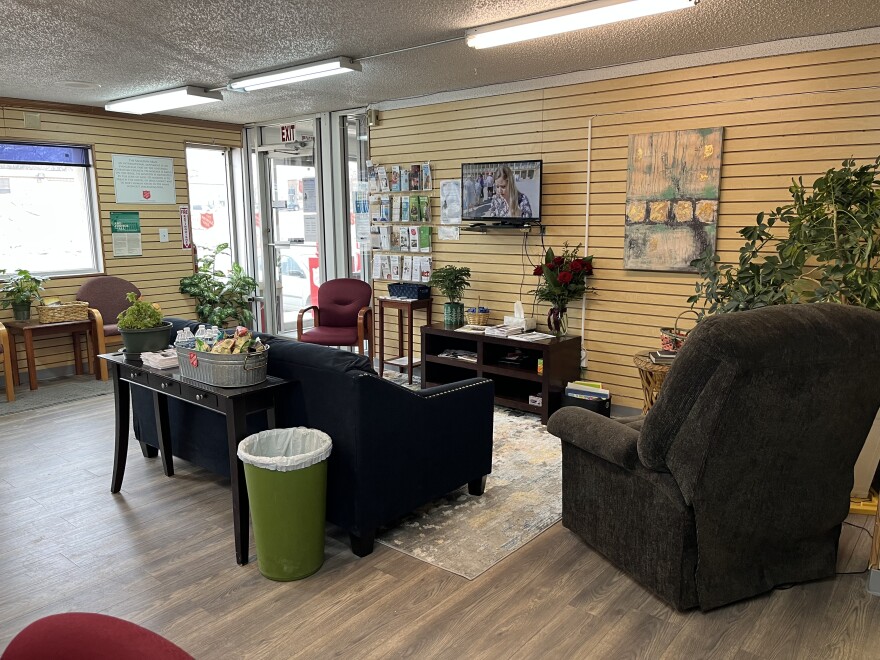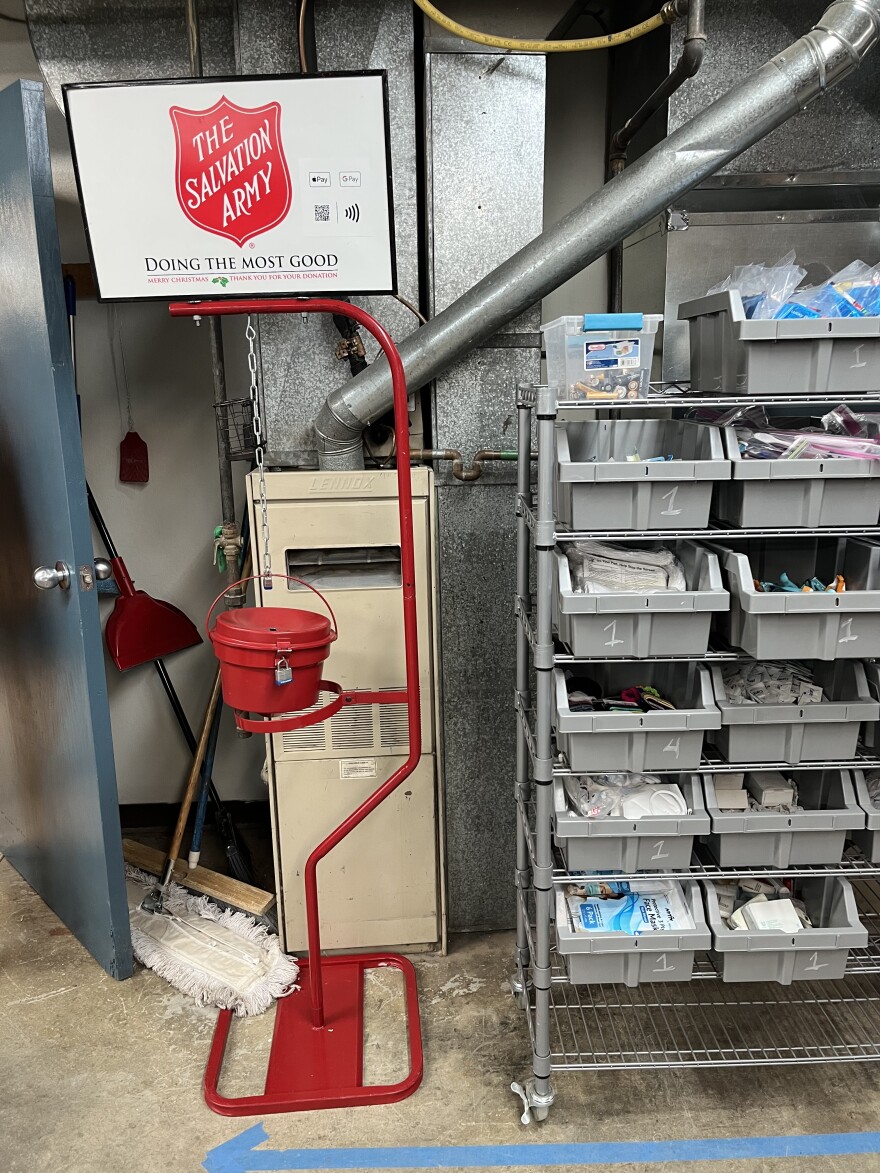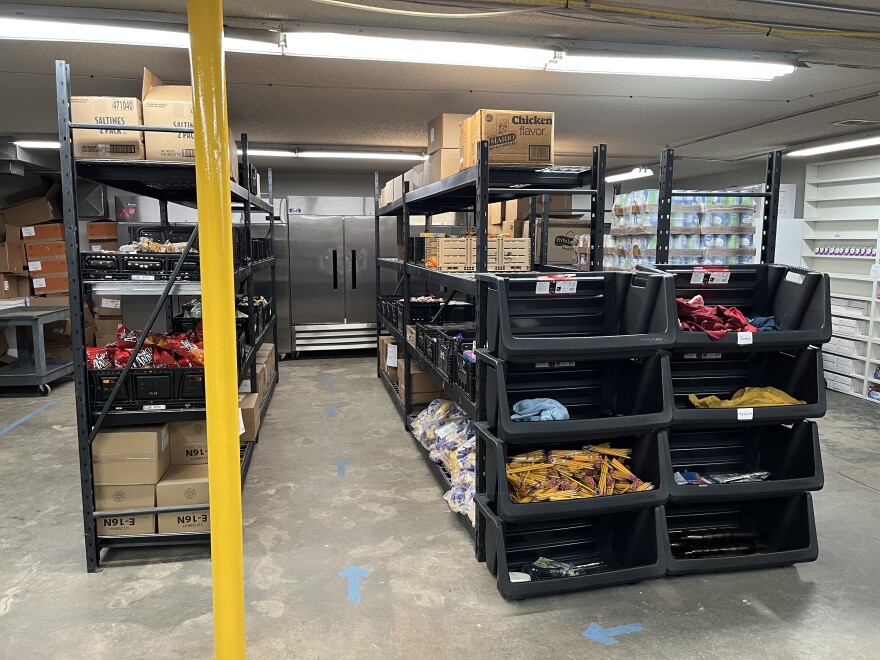Gillette’s Salvation Army Service Center has experienced an increase in need among older adults over the past several years. The international faith-based organization has been a presence in Gillette since the mid-1990s and also serves some of the surrounding communities in northeast Wyoming.
“Most of our clients fall within the low-income families range and families [can] range from an individual, but we have one family right now that has 13 kids, and the grandparents also live there, so parents, grandparents, and 13 kids, it's a lot,” said Jenny Nell Hartung, director of the Gillette Service Center. “But most of our folks are low income either because they're on a fixed income as a disabled or elderly person, or a veteran, or they are underemployed.”

Hartung is one of only two paid staff in Gillette with the other being a three quarter time receptionist. Approximately 16 volunteers help to make the Salvation Army’s mission of providing for the poor and needy a reality. The uptick in demand for its services began to increase even before the pandemic, when a lot of assistance organizations saw an increase in demand.
“We started [giving out] food here [in] the other building in 2017 in response to 600 layoffs through the coal mines when they wax and wane,” Hartung said. “Then in 2019, the Blackjewel [owned] mine closed very suddenly and without warning, and there was another 630, I think, families that have [no] paycheck, no benefits, no access to anything, and no money because their paycheck didn't come the day it was supposed to [on] July first of 2019. And so we increased our food [distribution] immediately.”
A call to the Food Bank of the Rockies helped to provide meals to affected families for several weeks until they were able to reorganize, adapt tor new arrangements locally, or move away, the last of which Hartung said wasn’t uncommon. Gillette’s Salvation Army facilities relocated to a larger building in January for more space and a storage area for food and other supplies.

“We've gone up incrementally really since 2017, since we started offering food,” Hartung said. “We feel like food is a good window into a family's needs. Like, if they need help with food, they probably need other supports as well.”
The pandemic also led to an increased need for food, rental assistance, and other forms of support. Additionally, the effects of inflation have taken their toll, especially on those who are low-income. This has also led to older and elderly adults seeking out assistance in larger numbers.
“I think that our services in the food pantry have increased for that population at least 12 to 15 percent,” Hartung said. “I was on a phone [recently] with a[n older woman] and she was freaking out because her gas bill for two months was $352 and she only gets $700 a month total. And she still has to pay her rent out of that and her copays on her medications, and so I think that increase in utilities are also putting a difficult wrench in the older folks’ financial lives.”
These new clients are in addition to low-income seniors, who Hartung said often live on $1,400 per month or less, and were already getting assistance.
“We've also seen an uptick in the number of veterans and disabled veterans that are being seen here,” she said. “We have one guy who needed some teeth work done. With his VA benefits he gets cleanings but he doesn't get any work done. And so if he has to have a cavity [filled], it's $100 or whatever. And so requesting help with things like that, those are sort of new areas for us to kind of look at and see what we can figure out.”

The expansion in office and storage space has also led to a significant increase in the utility bills for the Gillette Service Center. The facility it relocated from was about one third the size of the current facility. These costs have jumped from around $200 per month to around $700 per month. In addition to donations, Hartung writes a number of grants each year for its operations. It also receives one percent sales tax funds from the City of Gillette and Campbell County and cooperate with other social service organizations and local churches. The Salvation Army’s annual red kettle fundraising efforts undertaken during the holiday season, which is about one third of the Gillette office’s yearly budget, have been increasing each year since 2020. That year, donations noticeably decreased from around $70,000 to about $50,000. Last year, contributions totaled approximately $60,000.
Last year, the Service Center gave out approximately 34,000 boxes of food to 10,217 families.

First Lady Jennie Gordon also visited the Gillette Service Center recently while on a tour of facilities that she hasn’t yet visited.
“What we were trying to accomplish is to visit some of the facilities we hadn't already seen before but had worked with and had made donations through our organization to, and this is one of them,” Gordon said. “They have received a couple of infrastructure grants from us to buy fridges and freezers, and also some pantry replenishment funds so they could purchase food. So having not seen their previous facility, it sounds like this is a bigger space and a much needed improvement for them.”
Gordon said the Wyoming Hunger Initiative is currently involved with different programs statewide to help with its mission to fight hunger.
“We were able to get some funding to do some beef sticks and backpacks for kids that get backpacks over the weekend. We did our first pilot in Laramie County. It's USDA inspected beef, and we're working with the Friday Food Bag Foundation down there,” she said. “We've done it for this whole semester. After May, we're going to get together and see how we can take that statewide.”
Gordon is glad Campbell County also has a similar backpack program and that social service organizations are looking out for those who are most in need.
“You guys are taking care of your people,” Gordon said while touring the facility. “Just kudos to Gillette for supporting their citizens.”
Hartung said she believes there are more difficult times ahead but nonetheless tries to remain positive.
“I want to optimistically hope that things will continue to improve,” she said. “Things on the horizon look a little bleak, so, just hoping that things turn [around].”










